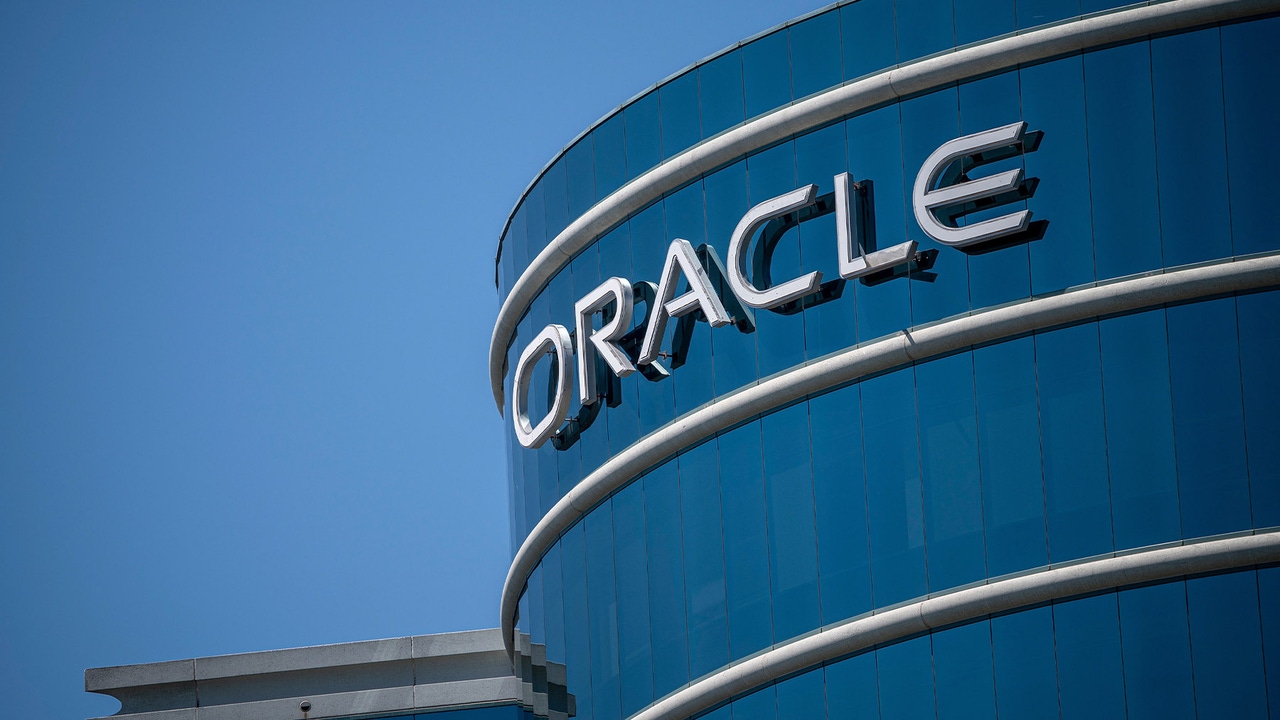June 12, 2024

(Bloomberg) -- Oracle Corporation reported better-than-expected bookings and announced partnership deals with tech rivals, giving a boost to Chairman Larry Ellison’s effort to redefine the software maker as a major competitor in the business of cloud computing. The shares gained more than 9% in extended trading.
The company, known for its database software, is focused on expanding its cloud infrastructure unit – which rents computing power and storage – to compete with Amazon.com, Microsoft, and Alphabet’s Google. While this division produces a small portion of total sales, investors view it as Oracle’s major future growth bet.
In the past two quarters, “Oracle signed the largest sales contracts in our history – driven by enormous demand for training AI large language models in the Oracle Cloud,” chief executive officer Safra Catz said Tuesday (June 11) in a statement.
Revenue growth will increase by double digits in the current fiscal year ending in May 2025, fueled by strong demand for artificial intelligence workloads, Catz said. Growth should accelerate through the year as the cloud unit’s “capacity begins to catch up with demand,” she added.
Oracle also announced a new agreement to make its namesake database available on Google’s cloud infrastructure. A similar deal with Microsoft, which was announced in late 2023, “will turbocharge our cloud database growth,” Ellison said in a separate statement.
OpenAI, which has received billions in funding from Microsoft, will use Austin-based Oracle’s cloud infrastructure for “additional capacity,” the companies said in a statement. Oracle’s cloud has developed a reputation for success with generative AI startups – the company touted customers including Reka, MosaicML, and Elon Musk’s xAI. Artificial intelligence technology needs enormous computing power to work.
“The world’s largest cloud companies and the world’s most successful and accomplished AI companies choose to use Oracle Cloud services and data centers,” Ellison said on a conference call after the company released its fiscal fourth-quarter results.
‘Undeniable’ Momentum
The momentum in Oracle’s cloud infrastructure business “is undeniable and the OpenAI announcement creates another positive data point in AI,” wrote Kirk Materne, an analyst at Evercore ISI.
Bloomberg Intelligence analyst Anurag Rana said the demand to run AI workloads in Oracle’s cloud computing data centers “could catapult it to become the fourth-largest cloud provider.”
Catz said on the conference call that the cloud infrastructure unit will grow more than 50% in the current fiscal year.
The shares rose to a high of $137.37 in late trading after closing at $123.88 in New York. The stock has jumped almost 18% this year, hitting a record in March.
Oracle said that total remaining performance obligations, a measure of future contracted sales, increased 44% to $98 billion in the period ended May 31, far surpassing the average estimate of $73.9 billion.
Revenue from the cloud unit that rents computing power and storage increased 42% to $2 billion, the company said in a statement. Analysts, on average, projected $1.97 billion, according to data compiled by Bloomberg.
Total revenue gained 3.3% to $14.3 billion, compared with the $14.6 billion average estimate. Profit, excluding some items, was $1.63 per share. Analysts expected $1.65.
Software Lull
Underwhelming results from peers like Salesforce Inc. and Workday Inc. in recent weeks have fueled investor anxiety that technology budgets are being funneled away from application software to artificial intelligence tools. Sales in Oracle’s cloud applications business, including its Fusion apps for corporate finance, increased 10% to $3.3 billion. That’s a slowdown from the roughly 14% growth the unit has seen over recent quarters and below analysts’ estimates.
The new partnerships are likely to accelerate growth in Oracle’s cloud infrastructure business, which could help offset a slowdown in applications, Rana wrote in a note after the earnings were released.
Oracle’s results have been buffeted by its health unit, which includes Cerner, the electronic health records business Oracle acquired in June 2022 for $28 billion. The company is currently focused on transitioning the legacy software business to the cloud, though it has faced setbacks such as customer departures and the renegotiation of a flagship federal contract.
Cerner hurt revenue growth in the 2024 fiscal year by 2%, Catz said on the call. The company, however, will no longer break out the Cerner financial results during earnings, “because it is now operating in a growth mode,” she said.
Catz also said Oracle will be exiting its advertising business, which generated only $300 million in the fiscal year that ended May 31.
About the Author
You May Also Like









